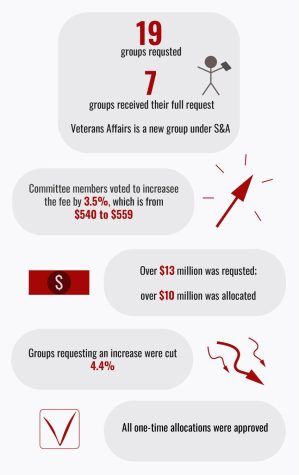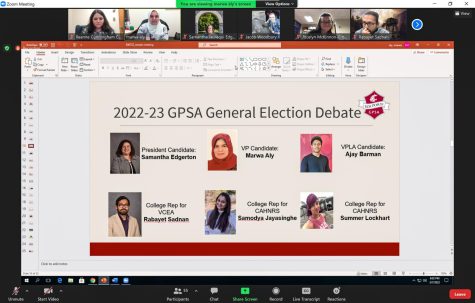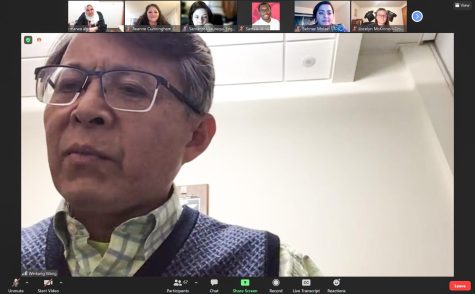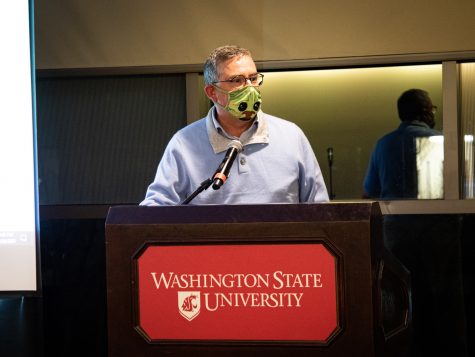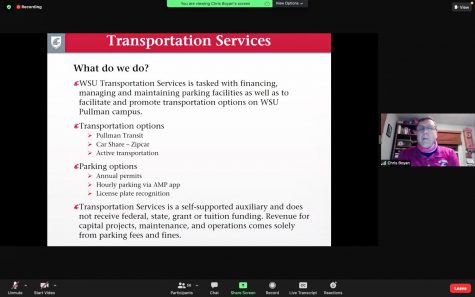GPSA votes to exclude transportation budget referendum from ballot
Student transit fee would increase up to 5% in 2023-24 school year; CCR responds to discrimination in variety of ways
February 8, 2022
The Graduate and Professional Student Association voted not to include Transportation Services’ proposed budget referendum in the general election, which begins March 7.
The proposal would increase the student transit fee from $72.16 to $106.16. However, students would no longer pay the $29.71 Services and Activities Fee that is allotted to transportation nor the $4.29 fee for the Cougar Accessible Transportation Services program, said Transportation Services Director Chris Boyan.
In total, students would pay the same $106.16 for various transportation projects, but it would be allotted differently, Boyan said. This would have begun in the 2022-23 school year if it had been approved.
For this plan to have worked, there would need to be a reduction in S&A fees and an increase in the student transit fee, Boyan said.
However, if this had been approved, the student transit fee would automatically increase up to 5% in the 2023-24 school year because of the Western Urban Consumer Price Index. In addition, the fee could have increased up to 5% each year if approved by the ASWSU and GPSA senates, he said.
Since the budget referendum will not be included on the general election ballot, the $106.16 fee total for transportation would not be subject to a 5% increase next school year.
Holly Ashkannejhad, Compliance and Civil Rights director, spoke at the meeting about what her office does. WSU has a policy that prohibits discrimination, and CCR is the office that handles any discrimination situation.
Discrimination does not have to be a big thing, Ashkannejhad said. It can range from a comment someone made all the way to a hate crime.
When CCR gets a report of discrimination, one of its employees will reach out to the person experiencing the misconduct, she said. CCR discusses what options the person has, and they get to make the decision on how they want to proceed.
CCR has a variety of ways it responds to discrimination. This can be an educational response all the way to serious disciplinary action such as expulsion or terminating an employee, Ashkannejhad said.
CCR also has an informal resolution process. This is completely voluntary, and both parties have to consent. The process is looking at what changes can be made to help both people, she said. For example, there may be a plan in place that prevents someone from entering a certain building.
When working with CCR, anyone is allowed to bring a support person, Ashkannejhad said. This could include a family member, friend or victim advocate.
Anyone is welcome to call CCR and tell them the situation without including names. CCR can give advice on how to proceed, she said.







